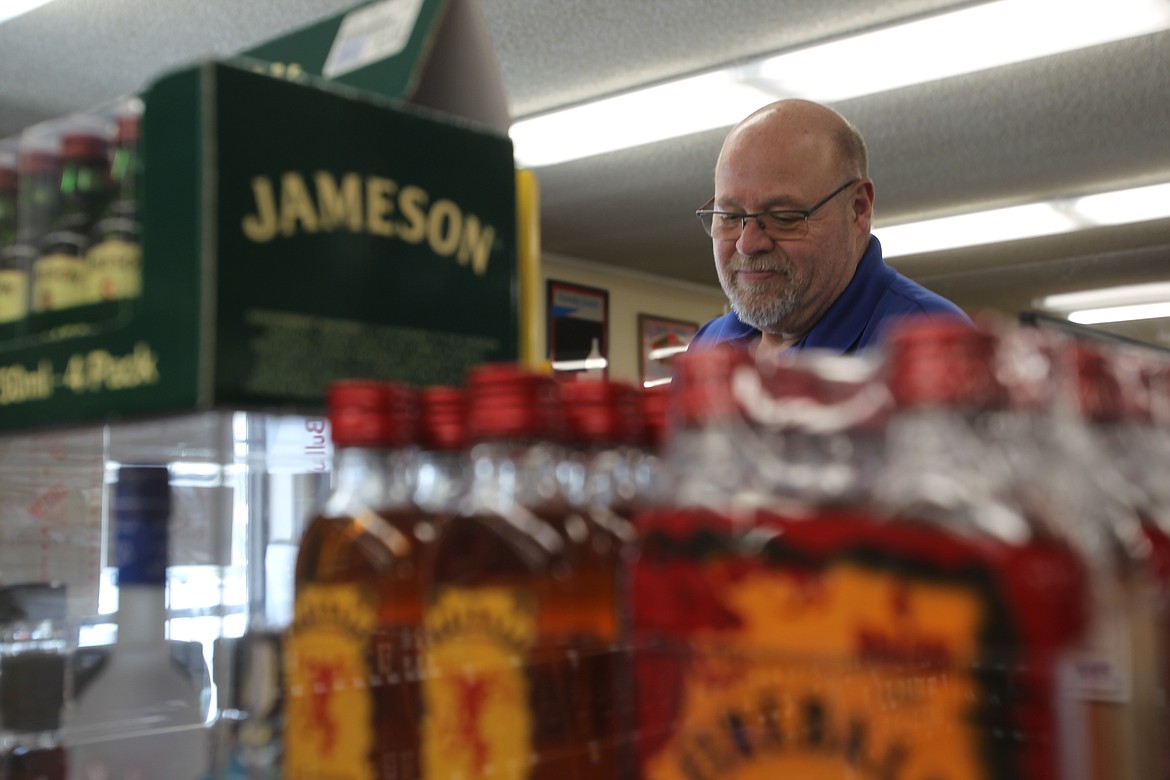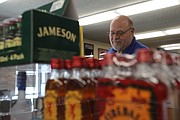BOTTOMS UP!
Virus or no, Idahoans drink
Idaho liquor sales are way up even though commercial sales have stopped, according to the state.
An erroneous news report ahead of Gov. Brad Little’s order last month sent liquor sales in Idaho skyrocketing like a champagne cork, but the eruption was short-lived, said Jeff Anderson, director of the state liquor division, which controls sales of alcohol in Idaho.
“We saw a spike in business over 10 days,” Anderson told The Press on Monday.
The spike preceded the governor’s March 15 order that closed bars and restaurants in an effort to curtail the spread of the coronavirus.
That order resulted in a sales boost at state liquor stores until people realized government entities, including liquor stores, were deemed essential and would remain open, Anderson said.
Another news report, however, around the end of March that purported liquor stores were closing on the East Coast sent another wave of Idaho customers to local dispensaries.
“We had a virtual New Year’s Eve on a Wednesday,” said Tony Faraca, who as CFO of the liquor division, tracks sales. “The stores weren’t staffed for New Year’s Eve.”
Customers lined up at local stores, which were ordered to allow only eight inside at a time. By 1 p.m. March 25 — a Wednesday — liquor sales at the East Sherman store had doubled, said Rick Shenfield, who manages the store.
A few hours later, business continued to bubble in.
“Between 3 and 4, our busiest time, we were three times more than normal sales, as far as retail,” Shenfield said.
His store usually supplies downtown bars and restaurants with spirits, but since commercial trade went away with the governor’s orders, he said retail sales have replaced the bar and restaurant sales.
“Our retail customers have made up for it,” he said.
Shenfield and clerk Bill Miller took care of a steady stream of afternoon customers who trickled in, and made mostly moderate purchases of a bottle or two at a time.
“We do have people come in for back-up,” Miller said.
But most customers realize the store is not in danger of closing.
Another state store in Coeur d’Alene at 1607 Northwest Blvd. closed because of a staffing issue, Shenfield said. Workers were pulled from the store to fill in at the other two locations where coronavirus concerns had employees stay home. The store will eventually open again, Shenfield said.
The 27 percent March sales increase at Idaho liquor stores was unusual, Faraca said.
“I’ve never seen anything quite like that,” Faraca said. “I’ve never seen a double-digit increase.”
The initial spike in sales between March 13 and 25 required adjustments, he said.
“We had significantly long lines,” he said.
Sales in Boise and Coeur d’Alene followed the same pattern, he said.
Liquor sales at Idaho’s 66 dispensaries and its contractors — such as Super 1 in Athol — usually peak in December. Last year, December sales were valued at $27 million, and at $26.3 million the year before. March sales at the 66 dispensaries were $23.5 million, Faraca said.
On March 25 alone the state took in $1.5 million in sales compared to $440,000 on the same day a year earlier, he said.
The third week of March this year saw sales of $5.7 million compared to $2.9 million last year, Faraca said.
Because commercial sales have stopped, those numbers are purely retail sales from which the state collects the full price of a bottle of booze and its full sales tax, Faraca said.
“That is a silver lining although the tax collected goes back to the city, county and state governments,” he said.
So far this month, sales are up about 9 percent.
“There’s been kind of a shift,” he said.
Despite the decline in commercial sales, the state is selling the same number of bottles.
“So we’re getting the full price and the full sales tax,” Faraca said. “We’re back on the same track as before the coronavirus.”
Anderson said the three-fold spike lasted almost two weeks, but shoppers have since found their groove.
“Once people realize they don’t need to panic, they don’t panic,” he said. “They are going back to their normal shopping pattern.”



